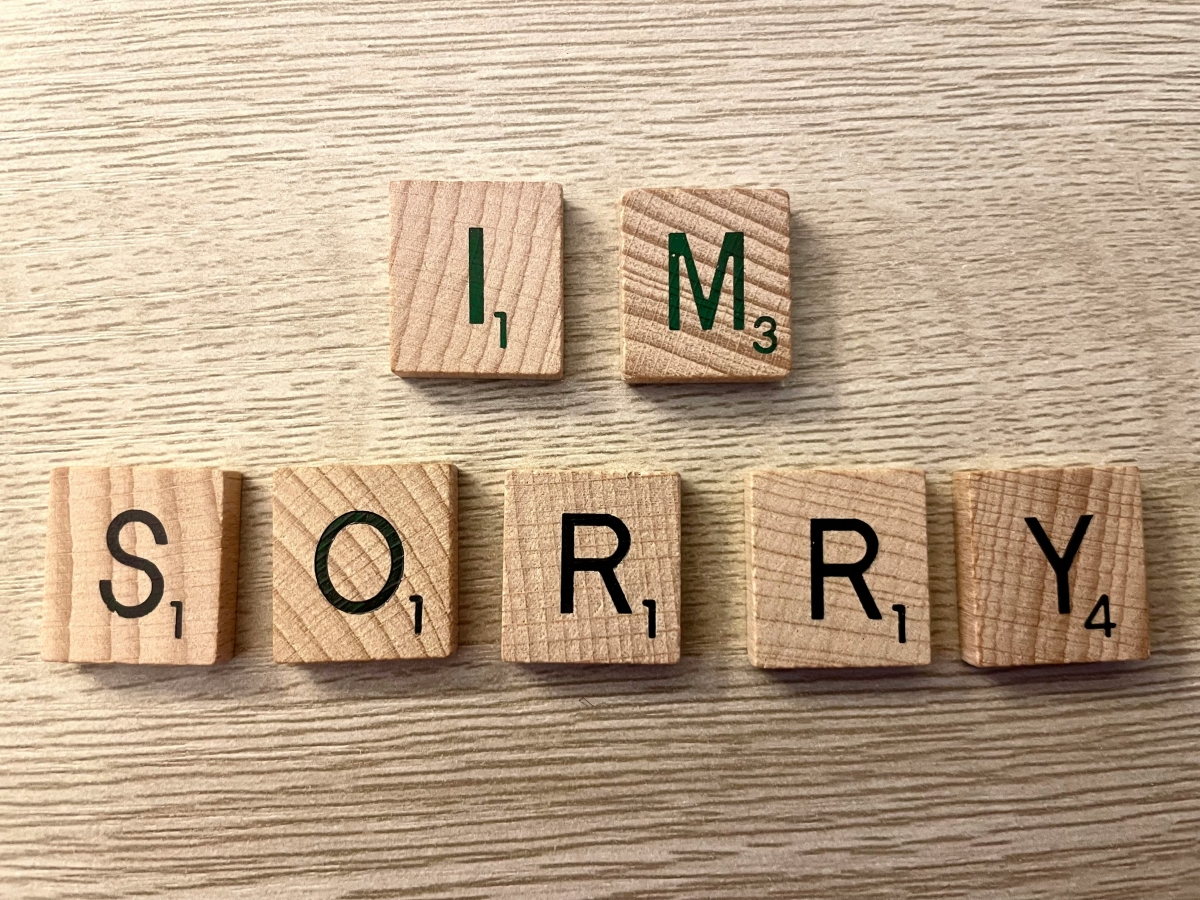Why it takes more than the occasional ‘sorry’: How frequency and quality of apologies shape our relationships
Editorial Assistants: Elisabeth Höhne and Zoey Chapman.
Note: An earlier version of this article has been published in the German version of In-Mind.
Missteps and hurt feelings are often unavoidable in romantic relationships. While some individuals are quick to fully admit their mistakes, others are more reserved. But how does the way we apologize affect our relationships?
In relationships, we often grapple with the question of how and how often we should apologize. Some people tend to apologize for almost everything, even when it’s not necessary. Others rarely ask for forgiveness. In one of their studies, US researchers Karina Schumann, Emily G. Ritchie, and Amanda Forest explored how these different apology patterns are perceived in romantic relationships and the types of reactions they elicit [1].
They surveyed 300 individuals (125 men, 172 women, 3 non-binary individuals) in committed relationships. Participants reported how frequently their partners typically apologize to them and how qualitatively valuable (e.g., sincere) these apologies tend to be. Based on these two core aspects–apology frequency and quality–the study investigated two main questions:
1. How do varying frequencies and qualities of apologies affect how certain character traits are perceived?
Participants evaluated their partners based on two character traits: communion and agency. Communion describes the striving for harmony and is often associated with traits such as warmth, morality or honesty. Agency refers to assertiveness, competence, and self-confidence. Although both traits are highly regarded, communion is considered the most important trait by which we judge others [2].
Frequent and high-quality apologies were found to enhance the perception of communion traits. However, when it came to agency, the findings were somewhat more complex: only the combination of frequent but low-quality apologies diminished the perception of agency traits. In contrast, high-quality apologies were always associated with a higher perception of agency, regardless of how often the partner typically apologized.
2. What impact do the frequency and quality of a partner’s usual apologies have on how people respond to a missing or qualitatively different apology?
Participants read a fictional scenario in which their partner mocked their views on a sensitive topic in front of others. They were then randomly presented with one of three possible follow-up scenarios: no apology, a shallow apology (e.g., brief and without any explanation), or a sincere apology (including detailed explanations, a promise not to repeat the mistake, and an acknowledgement of the hurt caused). Participants then assessed how cared for they felt by this apology, how satisfied they were with it, and to what extent they were willing to repair the relationship.
Responses showed that participants who generally received high-quality apologies from their partners viewed a one-time shallow apology less negatively compared to those who frequently encountered low-quality apologies. However, a missing apology was consistently viewed negatively, regardless of the partner’s typical apology quality. Surprisingly, the general frequency of apologies had no impact on reactions to a one-time shallow or missing apology.
What lessons can we draw for fostering better relationships?
By frequently apologizing, we may be viewed as warmer and more harmony-oriented by our partners. This perception, in turn, improves the chances of positive reactions to our apologies. However, to ensure that frequent apologies do not undermine one’s own autonomy and competence, it is crucial that our apologies are of high quality. By paying attention to both frequency and quality, we can not only repair but also further strengthen our relationships after a misstep. Of course, it’s always best to avoid missteps whenever possible.
Bibliography
[1] K. Schumann, E. G. Ritchie, and A. Forest, “The social consequences of frequent versus infrequent apologizing,” Pers. Soc. Psychol. Bull., vol. 49, no. 3, pp. 331–343, 2023. doi: 10.1177/01461672211065286.
[2] A. E. Abele and S. Bruckmüller, “The bigger one of the ‘big two’? Preferential processing of communal information,” J. Exp. Soc. Psychol., vol. 47, no. 5, pp. 935–948, 2011. doi: 10.1016/j.jesp.2011.03.028.
Picture source
Fig 1: https://unsplash.com/photos/a-group-of-wooden-letters-KkEj7OysI8o


